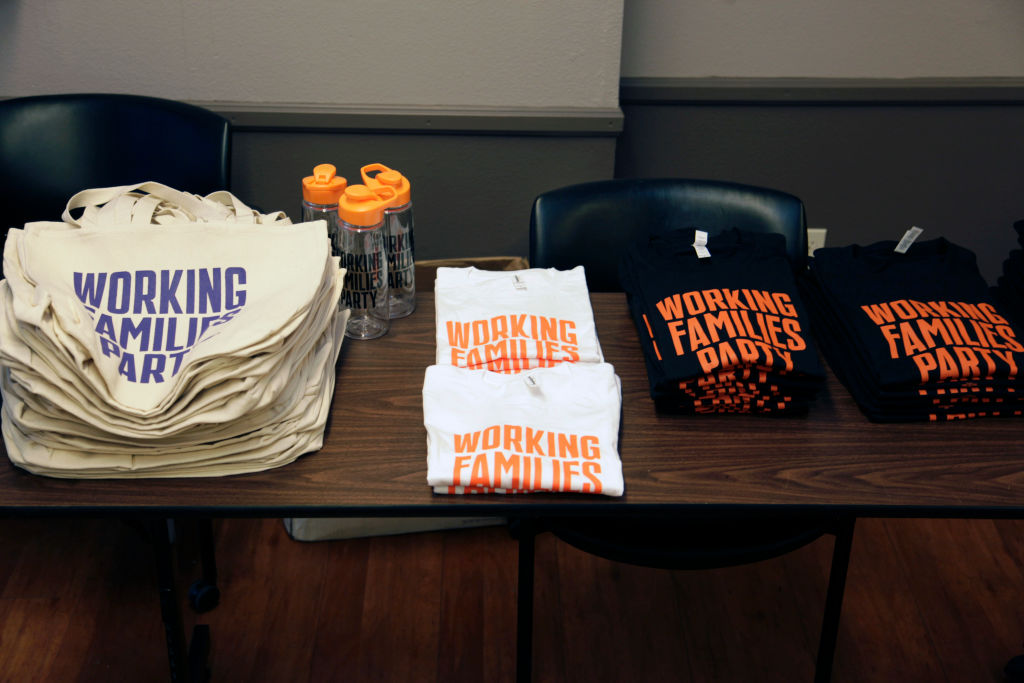Working Families Party Candidates Win Big In Metro Atlanta Elections
Metro Atlanta Election Results Show the Power of Progressive Candidates

Source: Jason Wise / Getty
Last Tuesday, voters in the Metro Atlanta area exploded the myth that Democrats need to stop being so “woke” and run more to the center if they want to win elections.
The proof, as our elders like to say, is in the pudding:
When engaged and presented with viable alternatives, the Metro Atlanta election results prove voters will get behind progressive candidates who run on platforms rejecting the status quo and do the work of engaging constituents about those platforms.
In Atlanta, two city council candidates ran against long-term incumbents who supported “Cop City,” a controversial proposal to build a police training center on 85 acres of land in South DeKalb County. Instead of investing more of the city’s money into police and policing, those candidates proposed a vision that puts more funding into the city’s communities with the most need and are supporting efforts to close Atlanta City Detention Center and convert it to a center for equity.
It turns out voters avoided the scare tactics that say only police can keep communities safe and bought into the vision. As a result, Liliana Bakhtiari made history, becoming the state’s first out queer Muslim elected. She’ll be joined on the council by Jason Dozier, who also defeated a 27-year incumbent, and Antonio Lewis, a community and union organizer who toppled the chair of the public safety committee and a big proponent of “Cop City.” Lewis forced the runoff by a 47 vote margin en route to a convincing victory in last week’s election. It was a clear mandate from voters that change is overdue.
Another big surprise that night came in South Fulton. With a population that is 92 percent Black, the Blackest City in America, elected organizer, city councilmember and socialist khalid kamau as mayor. Kamau captured 59 percent of the vote, defeating incumbent mayor William “Bill” Edwards.
Like his progressive counterparts on the council, kamau didn’t shy away from who he was, what he stood for, or his vision for the city of nearly 100,000 residents. Drawing on Marvel’s Black Panther mythology, his campaign website notes that he wants “to build a real-life Wakanda that empowers its citizens’ success like legendary African-American cities of Greenwood (Tulsa), Oklahoma or Rosewood, Florida.”
None of this occurred by chance.
Since 2017, the Georgia Working Families Party has organized and built power in the Peach State. What began as support for Stacey Abram’s gubernatorial run didn’t end there. We stuck around and planted roots because we’re playing for keeps.
Since that time, we’ve hired local organizers and built community with the activists and organizations that were here before us. We’re growing progressive governing power by investing and electing candidates who align with the people’s needs and pledge to fight for policies that put communities over profits.
Building independent power requires year-round engagement and attention to elections up and down the ballot. That’s also why our investment in last year’s Gwinnett County School Board elections resulted in the election of the first two Black women to ever serve on the board.
This was never just about winning elections. We believe the right candidates championing the right policies can use policy to change lives for the better. That’s what makes these Metro Atlanta wins so special – and what makes the things happening here more than deserving of national attention and replication across the country.
To be clear, all of our endorsed candidates would’ve run. They saw needs in the communities, listened to their constituents, and stepped up. That’s all the more reason we wanted to throw our support behind them. Women and nontraditional Black candidates often don’t get the support they need and deserve. We’re changing that, one race at a time.
Georgia WFP invested six figures in the Atlanta races, recruiting organizers and volunteers, resulting in more than 300,000 texts sent to Atlanta voters supporting our candidates. But we know there are limits to digital engagement. That’s why we also knocked on more than 7,000 doors.
In South Fulton, we were wowed and inspired by khalid’s vision for the city. Our organizers launched an independent effort that contacted nearly 9,000 voters by text or phone.
In a separate effort, Georgia WFP staff worked with our candidates every step of the way on campaign strategy, field support and communications.
That work continues. And in some ways, it is just beginning. Our incoming city council members and mayor-elect will face a whole new set of challenges once in office. They’ll be pressured by forces deeply invested in maintaining the status quo to water down or scrap the bold visions that got them elected. This is why we’re also ensuring our candidates hear from us and the movements that put them in office regularly.
Our partners, local activists, organizers and voters will be doing more than just watching from the sidelines. We’ll be actively working to transform our cities and, ultimately, the entire state into a vehicle that serves the needs of every family.
These elections are proof of what happens when you invest in candidates that excite people and make sure people know about them. Georgia doesn’t have to be the exception, and we hope people see this model and start writing new rules for what’s possible.
Britney Whaley is a Sr. Political Strategist with the Georgia Working Families Party
See Also:
Atlanta City Councilwoman Who Backed ‘Cop City’ Loses Re-Election Bid
Oddsmakers Give Stacey Abrams Early Edge In Rematch Against Brian Kemp For Georgia Governor
















